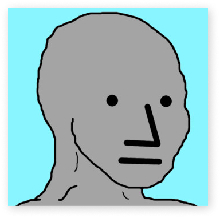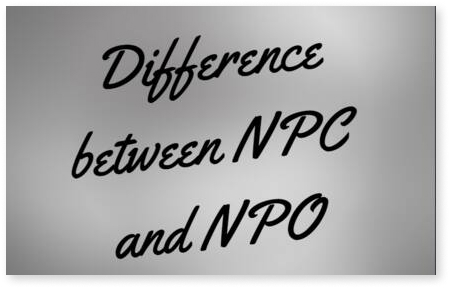Ever wondered about the unseen forces shaping your virtual adventures?
Want to know, what NPC stands for? Explore the world of Non-Playable Characters (NPCs) – the pivotal yet often overlooked entities driving simulations and games.
Have you pondered the depth of the NPC simulation theory or questioned the significance of NPCs in gaming landscapes?
You must need to know that,
NPCs, commonly encountered in video games, are characters controlled by the game itself rather than a player. These digital personas form the backbone of immersive experiences, offering quests, interactions, and a sense of realism within the virtual realm. However, the NPC game’s meaning extends beyond gaming; it embodies a concept permeating our daily lives.
Here’s more!
Understanding NPCs illuminates the boundaries between scripted actions and free will, inviting contemplation about our own scripted paths in reality. Let’s dive into the NPC phenomenon and unveil intriguing parallels with human behavior, sparking discussions about autonomy, consciousness, and existence itself. This exploration transcends the gaming universe, reflecting on societal roles and interactions.
Keep reading!
What does NPC stand for?

NPC stands for Non-Playable Character, a foundational element in gaming and simulations. These characters are controlled by the game’s programming rather than by a player’s input, serving various roles within the virtual world. In essence, what is NPC in gaming revolves around these non-controllable entities that populate the game environment, adding depth, interaction, and narrative to the player’s experience.
Within NPC video games, these characters assume multifaceted roles, from quest-givers and merchants to adversaries and allies. They provide essential functions such as advancing the storyline, offering guidance or challenges, and creating a sense of realism within the game’s universe. NPCs can possess unique personalities, behaviors, and dialogues, enriching the gaming landscape.
Expertly crafted NPCs contribute to immersion, enhancing the player’s engagement by simulating a living, breathing world. However, their significance extends beyond gaming. Understanding NPCs offers insights into artificial intelligence, interactive storytelling, and the boundaries between scripted behavior and autonomy.
In broader contexts, the concept of NPCs reflects societal roles, autonomy, and the nature of consciousness. They prompt reflections on the scripted nature of human interactions and the blurred lines between free will and predetermined paths. NPCs stand as digital embodiments of complex philosophical and technological inquiries, shaping both virtual and real-world experiences.
Examples of NPC
- Video Games: Found in games like Skyrim, World of Warcraft, or Fallout, NPCs populate the game world, acting as quest givers, vendors, enemies, or allies, enhancing the gaming experience.
- Role-Playing Games (RPGs): In Dungeons & Dragons, NPCs come alive as non-player characters created by the Dungeon Master, guiding players, offering challenges, or enriching the narrative.
- Social Media: Used metaphorically to describe individuals exhibiting repetitive behaviors or lacking critical thinking, likening them to characters on a scripted loop, often seen in memes or discussions.
- Artificial Intelligence: In AI-driven simulations, NPCs emulate human behaviors, contributing to realistic scenarios for training, testing, or research purposes.
- Interactive Fiction: Within storytelling mediums like text-based adventures or interactive fiction apps, NPCs act as interactive elements, responding to user inputs and shaping the narrative.
What is NPC famous for?

NPCs are famous for several reasons:
1. Driving Storylines
They advance narratives, offering guidance, presenting obstacles, and creating dynamic storytelling elements that engage players on their gaming journeys.
2. Symbolizing Societal Behaviors
Outside gaming, NPC has become a cultural reference, symbolizing conformity, predictable behavior, or lack of critical thinking in discussions and memes on social media.
3. AI and NPC Simulation Theory
NPCs serve as components in artificial intelligence, contributing to realistic simulations by emulating human-like behaviors, and aiding research, testing, and training AI models.
What is the difference between NPC and PNO?

Definition
- NPC (Non-Playable Character): NPCs are characters in video games or simulations controlled by the game’s programming rather than by a player’s direct input. They serve various roles within the game environment.
- PNO (Potentially Non-Obvious): PNO refers to elements or information that might not be immediately evident but can be discovered through investigation or analysis.
Key Points
1. Nature
- NPC: Represent entities within a virtual world, fulfilling predefined functions such as quest-givers, adversaries, or merchants, enhancing gameplay and narrative.
- PNO: Refers to hidden or non-obvious information, details, or elements that might not be readily apparent but can be uncovered with exploration or analysis.
2. Usage
- NPC: Predominantly used in gaming contexts, defining characters controlled by game programming to enrich the player’s experience.
- PNO: Applies in various fields beyond gaming, emphasizing the potential discovery of hidden information, often in problem-solving or analytical scenarios.
3. Role
- NPC: Integral to gaming experiences, contributing to immersion, storytelling, and interaction within the game world.
- PNO: Pertains to potential discoveries, insights, or details that might not be immediately evident but can significantly impact decision-making or understanding.
Discovery Process
- NPC: Exist as predefined characters within the game environment, with roles and behaviors set by developers.
- PNO: Requires active investigation, critical thinking, or analysis to uncover hidden or less apparent information, providing deeper insights or solutions.
How is NPC used on social media?

On social media, NPC finds a diverse playground beyond gaming. From sharing relatable moments to diving into deeper discussions, it’s not just about gaming anymore. Imagine tapping into a DND NPC generator to create characters or exploring the intriguing world of the NPC theory.
Social media users ingeniously employ NPC to describe individuals seemingly following societal norms without much critical thinking—like characters in a game operating on a scripted loop. It’s a metaphor for those seemingly devoid of individuality or original thoughts. Memes, posts, and discussions cleverly weave NPC into everyday conversations, spotlighting conformity or predictability.
Beyond its gaming origins, NPC sparks debates about societal behaviors, conformity, and autonomy. It’s a shorthand for patterns observed in people’s actions, highlighting the balance between individuality and societal influence.
In a nutshell, social media has transformed NPC into a symbol that transcends gaming, symbolizing conformity and scripted behavior, fostering engaging discussions, and serving as a lens through which we explore societal norms and individual expression.
Conclusion
This exploration into NPCs must help unravel their significance beyond gaming. From the immersive worlds of Dungeons & Dragons to understanding what is an NPC in broader contexts, these characters symbolize more than just scripted entities.
Whether guiding us through quests in games or sparking discussions about societal behaviors through ChatFAI, NPCs serve as mirrors reflecting our own complexities. Remember, in the world of imagination or the depths of AI, they’re the threads weaving stories and challenging us to ponder the fine balance between scripted roles and the uniqueness of our paths in reality.
FAQs
Q. What does NPC mean by slang?
In slang, NPC refers to individuals perceived as lacking in originality or critical thinking, behaving predictably within societal norms.
Q. What is NPC behavior?
NPC behavior characterizes repetitive or scripted actions resembling those of non-playable characters in video games, often used metaphorically to describe predictable conduct.
Q. What do you mean by NPC?
NPC stands for Non-Playable Character, commonly found in video games, representing entities controlled by the game rather than a player.
Q. What does an NPC stand for in a video?
In video games, NPC stands for Non-Playable Character, representing characters controlled by the game’s programming, contributing to gameplay, storytelling, and interactions.
Q. What is NPC on social media?
On social media, NPC symbolizes individuals exhibiting conformity or lacking critical thinking, often portrayed through memes or discussions.
Q. What is NPC in TikTok?
In TikTok, NPC references conformist behaviors or actions akin to scripted characters, used in videos or discussions highlighting societal norms or predictability.